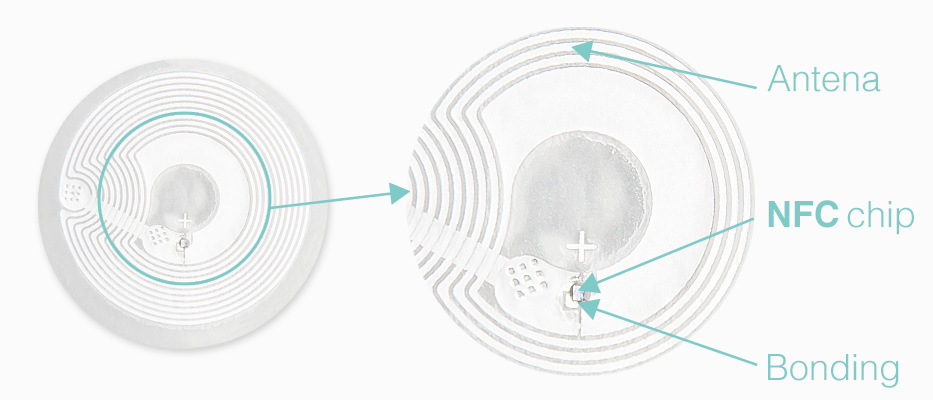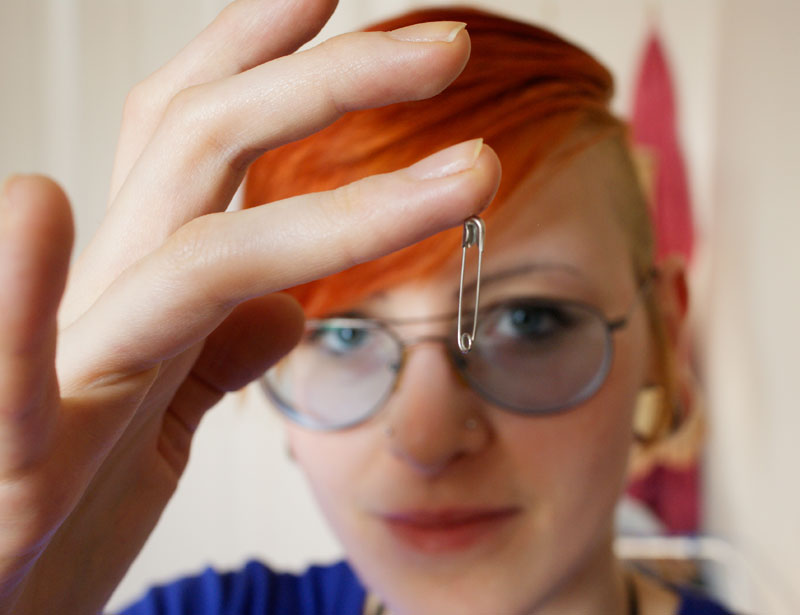How I Became a Cyborg
A couple of weeks ago, I had a small computer chip implanted in my left hand, between my thumb and my finger. I ordered the chip from the website Dangerous Things.

The chip is a 12mm x 2mm Near Field Communication (NFC) tag inside a glass cylinder, delivered via a sterile syringe. NFC is the technology known for it’s use in contactless payment, but can be used to wirelessly transmit data of any kind.
While I was initially researching this topic, I was excited to discover that the Cyborg Foundation was beginning a project with) the Thoughtworks Arts Residency. The Cyborg Foundation’s mission is “to help humans become cyborgs, to promote the use of cybernetics as part of the human body and to defend cyborg rights.”
How does the implant work?
An NFC tag is a very small chip attached to an antenna, which communicates via radio waves. NFC tags are “passive”, which means they don’t need an on-board power supply.

If you hold an NFC reader near my hand, for example an NFC-capable Android phone, the tag is powered entirely by the reader. The tag then transmits the data stored on it via a radio signal, which is interpreted by the reader.
In fact, my chip is writeable as well as readable, and has a capacity of 880 bytes — enough to store a digital business card for example.
So technically, this makes me a cyborg — depending on how you define the term.
Cyborgs are everywhere now
Cyborg is short for “cybernetic organism”. The term first appeared in the 60’s to describe “enhanced humans”, and is commonly associated with science fiction and fantasy.
Until a couple of months ago, I used to think of cyborgs as science fiction characters — as humans that enhance their bodies through technology to gain superpowers. However, cyborgs are far from fiction any more — in fact they are all around us. It has become relatively straightforward for people to augment their senses, and there are many options for how they might do it.

Some people become cyborgs by implanting magnets into their fingertips, allowing them to sense the magnetic field. Others have cochlear implants to regain their hearing. German researchers implemented a brain-to-text interface, so-called “mind uploads”. The military is building exoskeletons, which allow the wearer to carry heavy objects with ease. And these are just a few examples.
What makes a human a cyborg?
There are many strict or less strict definitions of what a cyborg is. One definition describes a cyborg as someone who has technology implanted into to their body — an implant that cannot be removed without surgical intervention.
Another, less strict definition describes a cyborg as someone who extends their skills and senses through technology. By this definition, technology can be implanted, but this is not a necessity. Heavy usage of an external device matches this definition as well.
An interesting aspect of the less strict definition is the problem of demarcation — since we all use technology of one form or another, which of us isn’t a cyborg? If we go by this definition, we are all cyborgs and we have been for decades, or even centuries!
The crucial similarity between both of these definitions is the “voluntariness” and the ability to switch the technology off, or put it away. Can emotional attachment to an external device be so strong, that we lose the ability to live without it? This is how we feel about our biological senses — might technological senses come to be the same?
Does a prosthetic make you a cyborg?
Another consideration is that of a prostheses — an artificial limb. A prosthesis functions as an integral part of its wearers body, and the wearer may come to rely fully on the limb — however they are often easy to remove.

In the last few years people have been discussing the acceptance of prostheses in the olympics. Do wearers have an unfair advantage over other athletes? Society seems to accept medical cyborgs who augment their bodies, as long as they only “fix their shortcomings”. However if we suspect someone is enhancing their skills and abilities above “normal”, we are afraid of losing control.
The future of smart surgery
Progress in this field is inevitable in the coming years. Microcontrollers and electronics are set to get even smaller, their software more sophisticated, and our surgical procedures less invasive.
In Germany, we currently have a fairly clear line, culturally and legally, dividing whether it’s permissible to augment your body or not. As technology progresses, the pressure will be on for this line to move, to keep pace.
Augmentation may become not only about fixing “shortcomings”, but about gaining new abilities altogether. For example, sometimes wearers can run for longer periods of time with a prosthesis. As this augmentation becomes more accessible, and easier — and as a market develops for it — the legal and cultural lines could blur.
In this potential future, the bar against which people come to judge themselves would be raised continually as the pace of technological progress increases. The term “disability” would come to be redefined in our vocabulary.
Corporate cyborgism
However, I am not afraid of losing control. I am not afraid of a future where I augment my body so I can see ultraviolet light, where I can hear ultrasound, and where I am able to run 500 miles without exhaustion. Yes, there are complex questions, as there always are with technology. However, it is important that we face these challenges head on.
Instead, for me personally, my darkest fear lurks in the thought of a world full of “corporate cyborgs”. Where enhancing our bodies is all about optimisation and profit and nothing more than a modern version of the eugenic thought. A world where I lose my newly gained senses because I did not agree to the terms and conditions.
The question that is left is how can we enhance ourselves through technology to embrace individuality, freedom and autonomy?
Keep on top of Thoughtworks Arts updates and articles:

